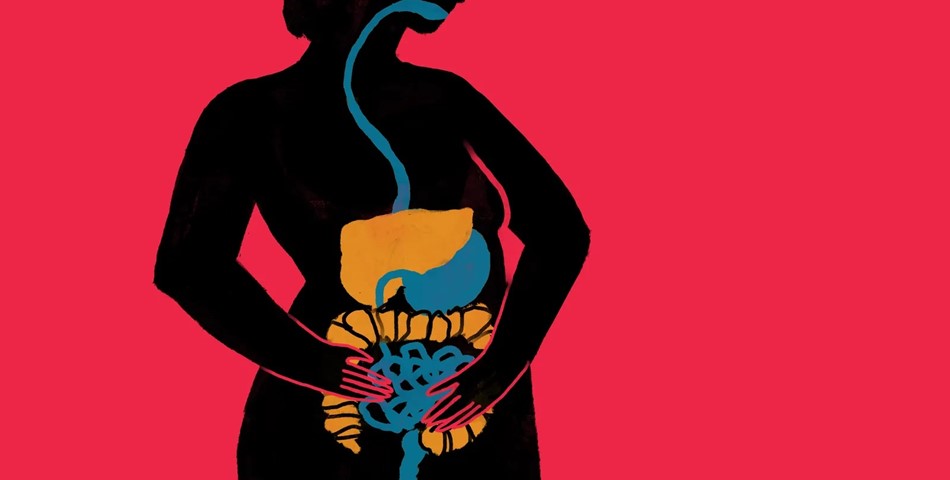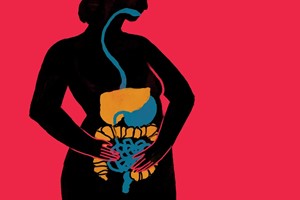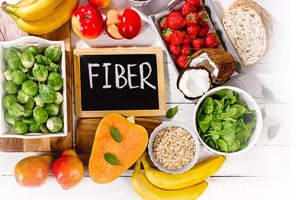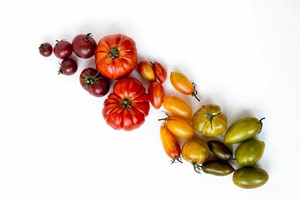How your gastrointestinal system keeps you healthy.
Your gastrointestinal (G.I.) system, the key player in your overall digestive health, is one of the most important systems in your body. It consists of the mouth, esophagus, stomach, small intestine, large intestine, liver, pancreas, and gallbladder, and is responsible for breaking down food so that it can be absorbed and used by the body (including the heart and brain, two of your most vital organs). Your digestive health can be affected by so many variables—diet, exercise, lifestyle, and health conditions, among other factors.
How does the digestive system work?
According to the National Institutes of Diabetes and Digestive and Kidney Disease (NIDDK), your digestive tract is broken down into six main hollow organs and two solid ones that help ingest, digest, absorb, and eliminate food as it moves through the tract. Let’s start at the top:
- Mouth
When you take your first delectable bite of that fresh pasta or homemade pie, you’re likely only thinking about how awesome it tastes. While you’re preoccupied with all the flavors, your mouth is already started to digest the food. Using your tongue and teeth, you begin to digest your food by chewing it. As you chew, your salivary glands release saliva, which has chemicals that begin the initial breakdown of food. Swallowing the food pushes it into your esophagus through your throat, which begins the next stage of digestion.
- Esophagus
After you’ve chewed and swallowed that first bite, your mind has already moved on to the next bite. But your food continues its journey. Once it enters your esophagus, it is moved through the tube by peristalsis. You can think of peristalsis as an almost “squeezing” motion that the muscles in your digestive system do in order to push and mix food and liquid within the tract. Once the food reaches the bottom of your esophagus, your lower esophageal sphincter, a ring-like bundle of muscle, relaxes to allow the food to enter your stomach.
- Stomach
The party really starts when food hits your stomach. In your stomach, food and liquid are mixed with digestive juices—including highly acidic hydrochloric acid (stomach acid) and various enzymes, among other compounds—that continue to break down food. As food mixes with the digestive juices, it forms a mass called chyme, which then enters your small intestine from your stomach.1
- Small intestine
Once food enters your small intestine, the solid organs of your digestive tract—including your liver and pancreas—help break down the food even further. Pancreatic enzymes secreted by your pancreas help break down carbohydrates, fats, and proteins, while bile secreted by your liver assists in the breakdown of fats and vitamins. All of these nutrients are absorbed into your bloodstream from the walls of your small intestine, leaving behind waste products (yes, the makings of poop) that are then moved into your large intestine.
- Large intestine
When waste products enter your large intestine, they form a solid waste product called stool (still just poop). The large intestine's primary job is to regulate the water content in creating stool, both by absorbing and secreting it. Stool continues the journey through your large intestine via peristalsis, and eventually reaches your rectum and your anus, triggering a bowel movement.
- Gallbladder
When you’re not eating, your body doesn’t need to use the bile created by your liver, so it’s stored in your gallbladder. Once the digestive process begins again, your gallbladder will send this stored bile through specialized ducts directly into your small intestines to help break down food.
The two solid organs
In addition to the five main organs of your digestive tract, there are two solid organs that also play a supportive role in breaking down food, according to the NIDDK:
- Liver: Your liver is a large organ situated in the upper right portion of the abdomen that performs many functions inside of your body. As part of the digestive system, it creates a liquid called bile, which is sent to your small intestine to help break down fats and vitamins. When bile is not in use, it is sent to your gallbladder for storage. The liver also stores glucose (sugar)—what your body uses for energy—and nutrients for later use.
- Pancreas: During digestion, your pancreas creates a specialized mixture of enzymes that are sent to your small intestine to help break food into various nutrients, such as carbohydrates, fats, and proteins. Outside of digestion, your pancreas is also responsible for creating the hormone insulin, which helps your cells recognize and absorb energy-producing glucose from the bloodstream.
How to improve gut health
One of the most important things you can do for your body is to take care of your gut—something that can be done with mindful steps in your everyday life. Below, we’ll share five science-backed tips for how to improve your gut health, one small step at a time.
- Eat your probiotics (and prebiotics).
Your gut microbiome consists of—wait for it—trillions of microorganisms all working together to support everything from your digestive health to your immune health, and so much more. One of the ways that you can support this microbiome is by eating beneficial microorganisms called probiotics, according to the Harvard School of Public Health. You can increase your probiotic intake by eating more probiotic-containing foods, like Greek yogurt, kefir, sauerkraut, kimchi, and other fermented foods.
Prebiotics play an important role in keeping your gut microbiome healthy, too. Unlike probiotics, prebiotics are not live organisms—they are the food that those live microorganisms eat, so they can influence the type of microorganisms that thrive in your gut. According to a 2017 Study published in Nutrients, most prebiotics can be found directly in your diet, from fiber-rich foods such as bananas, berries, artichokes, asparagus, wheat, oats, and more.
- Keep your body hydrated.
Aside from quenching your thirst and generally keeping your body running, water is necessary for the transportation and breakdown of food inside your digestive tract and the healthy transport of stool as it leaves your body. Research has also shown that water intake can actually influence the diversity of your gut microbiome, too, so make sure that you’re drinking enough water for your body each day.
- Prioritize getting enough sleep.
It’s no secret that sleep is important to your health. In fact, a lack of sleep can increase stress levels, impact hormone levels, and even affect the way you choose to eat—all of which can potentially impact your gut health. Also, 2015 research published in the journal Gastroenterology and Hepatology suggests that there is a connection between sleep disorders and gastrointestinal diseases, which highlights the importance of making sure that you’re getting enough shuteye (try to aim for seven to eight hours per night!).11
- Move your body more often if you can.
You might not think that exercise has anything to do with gut health, but 2017 research published in the journal Oxidative Medicine and Cellular Longevity suggests it does. The study found that exercise can not only increase blood flow to your gut but also help food and stool move through your digestive tract.12 In addition, regular exercise seems to have a beneficial impact on the diversity of your gut microbiome, so try to move your body for at least 150 minutes a week, as recommended by the Centers for Disease Control and Prevention (CDC).
- Practice reducing your stress
We all know stress isn’t good for your mental health, but chronic stress may increase your risk for chronic diseases. According to Harvard Health, hormones released during the fight-or-flight response can slow down or halt digestion, which may lead to chronic digestive symptoms and problems. Consider adding activities like gentle exercise, mindfulness, and relaxation techniques into your daily or weekly routine to help manage and reduce your stress levels.










